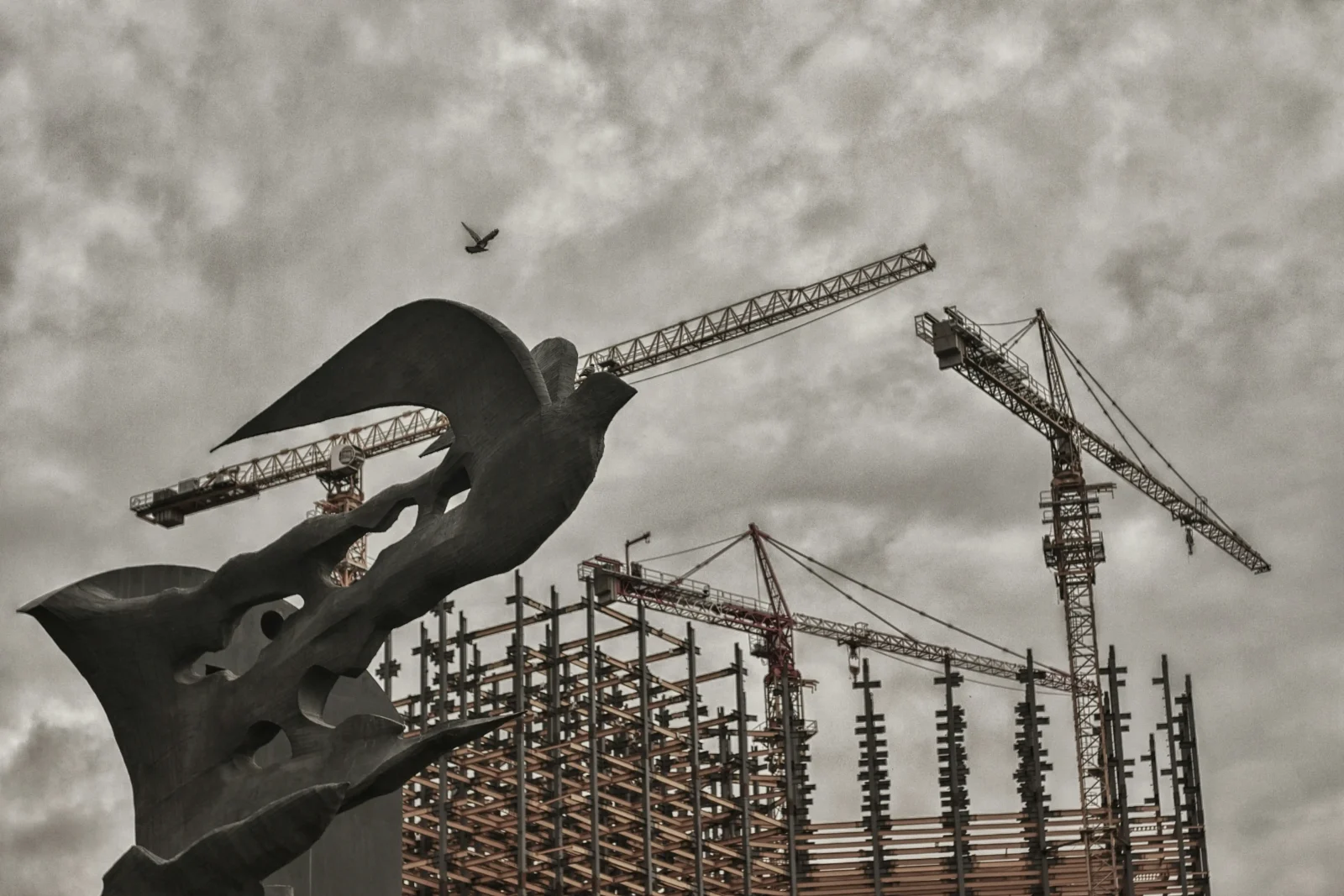- Home
- Articles
- Architectural Portfolio
- Architectral Presentation
- Inspirational Stories
- Architecture News
- Visualization
- BIM Industry
- Facade Design
- Parametric Design
- Career
- Landscape Architecture
- Construction
- Artificial Intelligence
- Sketching
- Design Softwares
- Diagrams
- Writing
- Architectural Tips
- Sustainability
- Courses
- Concept
- Technology
- History & Heritage
- Future of Architecture
- Guides & How-To
- Art & Culture
- Projects
- Interior Design
- Competitions
- Jobs
- Store
- Tools
- More
- Home
- Articles
- Architectural Portfolio
- Architectral Presentation
- Inspirational Stories
- Architecture News
- Visualization
- BIM Industry
- Facade Design
- Parametric Design
- Career
- Landscape Architecture
- Construction
- Artificial Intelligence
- Sketching
- Design Softwares
- Diagrams
- Writing
- Architectural Tips
- Sustainability
- Courses
- Concept
- Technology
- History & Heritage
- Future of Architecture
- Guides & How-To
- Art & Culture
- Projects
- Interior Design
- Competitions
- Jobs
- Store
- Tools
- More
7 Common Myths Every Contractor Should Stop Believing

The construction landscape is a complicated place at the best of times, with projects increasingly prone to unforeseen issues and budgeting constraints. One major problem within the industry is that firms still appear to be dependent on accepting common myths as fact and allowing them to shape their operations.
Problems in construction projects can affect even the most resourceful of firms. According to a recent study of large projects over the past century, Strategy+Business found that a huge 91.5% went over budget, over schedule, or both.
Could more contractors find better levels of efficiency by identifying the industry’s most common myths and overcoming them? Let’s take a deeper look at seven major misconceptions that every construction contractor should take with a pinch of salt when it comes to future projects:
- The Lowest Bid Always Wins
Yes, lower bids can help to get you noticed, but clients are wising up to the pitfalls of reckless cost-cutting and their significant hidden costs, such as rushed work, low-quality materials, and the greater risk of disputes and rework.
Today, more clients are looking to the contractor’s reputation, value, schedule, and quality of output when assessing whether to opt for one bid over another.

While it can be tempting to undercut your rivals with a lower bid, creating a sustainable and professional bid that details your processes and the value you can bring to a project is more likely to win than attempting to low-ball other contractors with a bargain price.
- Word of Mouth is Better than Marketing
While word-of-mouth is certainly advantageous, you should never rely on it as an alternative to a marketing strategy. By proactively marketing your business and building a strong digital presence, you can significantly grow your client base in a way that helps you to achieve your potential.
To do this, invest in a modern website, assess your branding, and work on establishing a presence on relevant social media platforms to attract new leads and help you stand out from your competitors.
- Technology is Too Expensive to Adopt
Many contractors mistakenly believe that advanced technology is only for large companies, but this is simply not the case, and affordable options are widely available to help boost your operations.
Digital tools can help to streamline operations, improve accuracy, and assist contractors in saving time and money on projects.
Construction project management software is just one example of making it easier to manage a construction project. This software can assist you in every area of operations, supporting intelligent automation and real-time insights for effective management.

Cloud-based platforms are a great way for contractors to access centralized data management, while other technologies, such as laser scanning and robotic total stations, offer greater accuracy in measurements.
- Planning Protects Against Unwanted Surprises
Even the most flawless plans aren’t immune to unforeseen challenges. Construction projects are often complex and prone to problems that can’t be mitigated in advance.
Issues like weather delays, supply chain problems, or troubles with site conditions can all thwart plans. You should always be ready for things to go wrong, and expecting anything different could lead to complacency.
The very best contractors are aware that contingency planning is essential for all projects, and it greatly enhances their reliability and reputation when they can respond to unexpected challenges more quickly and efficiently.
- Hard Work Trumps Strong Communication
Although very few contractors will openly claim that communication is a secondary consideration, many operate as such. In reality, construction is a people business that depends on constant and clear communication to be successful.
Instances of poor communication can lead to misunderstandings with clients, designers, and subcontractors, resulting in delays and mistakes.
The best contractors act as liaisons and communicate project updates, timelines, and potential issues quickly to ensure constant alignment between all parties.

- Verbal Agreements Should be Honored
Never rely on a handshake deal or an informal agreement when it comes to construction. You should only ever strive for legally binding contracts that are physically written up and that detail the scope of work, budget, schedule, and procedures for change orders.
Without a clear written contract, disputes can regularly arise over money or quality and may even lead to a costly legal battle with no clear winner.
- Documenting Variations Risk Upsetting Clients
Issues can arise at any stage in a project, and without any clear documentation of variations, it can quickly become every party for itself. Clients may choose to forget any verbal agreements made, meaning that you’ll struggle to receive the correct payment for your work.
It’s essential that you formally document all variation claims according to your contract, regardless of how small the changes are. Always think of your contract as your rulebook, and by documenting all legitimate changes, you can protect your business and the client from any nasty surprises later down the line.
The Road to Success
One of the biggest mistakes that contractors can make is to rely on assumptions. Some of the most successful construction firms are great at what they do because they anticipate problems long before they arise.
In overcoming common myths surrounding the industry, you can become more adaptive in countering issues that you may find from project to project. This can help you to find efficiency and boost your reputation as a reliable contractor to clients.
illustrarch is your daily dose of architecture. Leading community designed for all lovers of illustration and drawing.
Submit your architectural projects
Follow these steps for submission your project. Submission FormLatest Posts
Busan Opera House by Snøhetta: A Waterfront Cultural Landmark Nearing Completion
Snøhetta's Busan Opera House transforms reclaimed waterfront land into a democratic cultural...
Drones in Modern Construction: Redefining Site Analysis and Architectural Control
Drones are reshaping modern construction by offering architects new ways to observe,...
Overcoming Industrial Construction Challenges
Table of Contents Show Start With Risk-First Planning, Not Wishful SchedulingProtect Safety...
The Role of Insurance in Building a Resilient Construction Business
Table of Contents Show Contract Works Insurance: Protects materials and work in...












Leave a comment